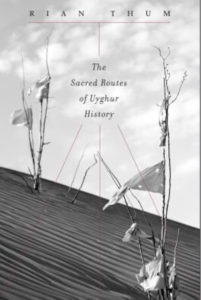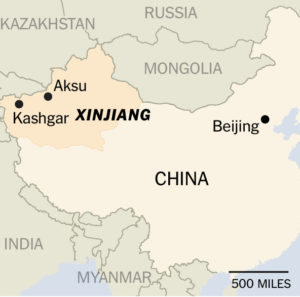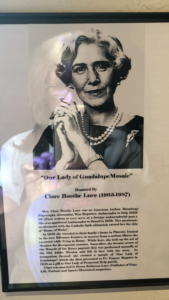Knock Down the House.
May 1, 2019
“How do you prepare yourself when you don’t know what’s coming?”
This is more than about AOC. It’s about hope in American politics.
The new Netflix documentary is worth a watch, no matter your political persuasion.
VOX
’Knock Down the House is the rare documentary about today’s American political landscape that might make you shed happy tears. After a triumphant festival run — including winning the Audience Award for US Documentary and Festival Favorite Award at its Sundance premiere in January, now streaming on Netflix.
It sounds a broad note of hope: It’s not just blowhard billionaires with media expertise who have a chance to represent “real America.” Plain old shoe-leather canvassing and showing up in your community can make a real difference.’
[Hurry! See this one. Invite folks who don’t have Netflix—you’ll be cheering!]
“The first part of doing anything is letting people know it’s happening.”
“Partly insulated from the rest of the Islamic world, the Uyghurs constructed a local history that is at once unique and assimilates elements of Semitic, Iranic, Turkic, and Indic traditions–the cultural imports of Silk Road travelers. Through both ethnographic and historical analysis, The Sacred Routes of Uyghur History offers a new understanding of Uyghur historical practices, detailing the remarkable means by which this people reckons with its past and confronts its nationalist aspirations in the present day.”
Journalist and MSNBC host Chris Hayes:
“Did you know there are roughly one million people currently held in internment camps in China? One million people detained against their will, facing no criminal charges, cut off from the outside world. This is the story of the Uyghurs, a small insulated ethnic minority in Western China. The predominantly Muslim group has faced growing levels of Islamophobia and paranoia from the Chinese government. Right now, roughly ten percent of the Uyghur population has been ‘disappeared’, held indefinitely in re-education camps where they are subjected to totalitarian indoctrination in an attempt to erase their identity, their language, their religion and their culture. Rian Thum, who has spent his career studying the Uyghurs, joins us to explain everything we know about the camps and how they came to be – including the prison-like surveillance state that Uyghurs outside of the camps are forced to live in.”
CHRIS HAYES: That’s the thing that I keep thinking about, that keeps haunting me. The reason I’ve been wanting to talk to you is I know this is going on. It’s sort of in the corner of my head, what if the Chinese state just said, “Well, you know what? The indoctrination’s not working. We’re just gonna execute 1,000 of these folks a day.”
RIAN THUM: Yeah, that really worries me, too. I think at some point, they are going to confront a failure of indoctrination. There’s … You can make people submit, but it’s very difficult to make them think differently. It might have some success, but there’s bound to be a large percentage of this million or so people who they determine to be failures and irredeemable, and I’m worried about what happens to those people.
You’ve brought up the Holocaust a few times, and I think there’s one place where that analogy is really important, and that is in examining intent and plans for the future. The German concentration camps, it was something like four of five years before the majority of the population in them was Jewish, and it was eight or nine years before they were connected to a program of mass killing. The reason I bring that up is that goals can change, and the function of these things can change, especially when you’re looking at such a massive system that has no appeal system, no regulation, no oversight. Who knows what the future holds? And we’ve already seen that the rest of the world’s reaction to this has been rather slow. I don’t think there will be time to react if it does take an uglier turn.
CHRIS HAYES: What chills me to my bones is, as far as I can tell, they’re doing it in plain sight and getting away with it in plain sight, and by that, I mean the camps, not something beyond that. But this totalitarian surveillance state they have erected on the backs of the Uighurs, outside the camps and the camps themselves, which are, I think … the largest internment camps that exist in the world at the moment.
https://www.stitcher.com/podcast/msnbc/why-is-this-happening/e/60217354
New York Times:
KASHGAR, China — Muslim inmates from internment camps in far western China hunched over sewing machines, in row after row. They were among hundreds of thousands who had been detained and spent month after month renouncing their religious convictions. Now the government was showing them on television as models of repentance, earning good pay — and political salvation — as factory workers.
China’s ruling Communist Party has said in a surge of upbeat propaganda that a sprawling network of camps in the Xinjiang region is providing job training and putting detainees on production lines for their own good, offering an escape from poverty, backwardness and the temptations of radical Islam.
But mounting evidence suggests a system of forced labor is emerging from the camps, a development likely to intensify international condemnation of China’s drastic efforts to control and indoctrinate a Muslim ethnic minority population of more than 12 million in Xinjiang.
Accounts from the region, satellite images and previously unreported official documents indicate that growing numbers of detainees are being sent to new factories, built inside or near the camps, where inmates have little choice but to accept jobs and follow orders.
After awareness? Boycotts. Products, like tomatoe used from Xinjiang make most brands of ketchup. Also, refusal to participate In Beijing for the 2022 Winter Olympics.
Rian Thum:
”I think we need to consider very carefully whether we want to support an Olympics that will be held in China in 2022 when they’re doing this to one of their ethnic groups. I can’t support it, and I would hope that people involved in the Olympics would consider this.”
A discovery in Scottsdale.
Our Lady of Guadalupe mosaic, presented to Our Lady of Perpetual Help parish in Scottsdale, Arizona n 1958.
A versatile author, Clare Boothe Luce is best known for her 1936 hit play The Women, which had an all-female cast. She was the first American woman appointed to a major ambassadorial post abroad, Italy.
“She was truly a remarkable woman. Her career spanned seven decades and nearly as many professional interests—journalism, politics, the theatre, diplomacy, and intelligence.” [Henry Luce Foundation] https://www.hluce.org/programs/clare-boothe-luce-program/about/
“Luce was introduced to mosaic by Louisa Jenkins, a mosaic artist from Big Sur, California. Luce’s daughter Ann, a student at Stanford, died in a car accident at 19. In her grief, Luce converted to Catholicism and commissioned artists to design a chapel in Ann’s memory at Stanford.” [Margaret Almon] https://www.margaretalmon.com/louisa-jenkins/
#SaveTheRest
A little boy protecting his brother in Syria.
‘SaveTheRest.Campaign is a human rights campaign to save the lives of thousands of detainees in Syrian prisons.’
‘No One Hears Us’: Torture of Women in Syria’s Dungeons
‘The report ‘No one hears us’ documents the horrific torture of women in Syria’s dungeons as part of a deliberate strategy employed by the Syrian regime. In light of these crimes against humanity, the TRT World Research Centre calls for an impartial investigation into the use of systemic torture and gender based violence.’
May Day 1886
‘The first national turnout for worker’s rights in the U.S. was on May 1, 1886 — and contrary to what we’ve heard elsewhere, it wasn’t the same thing as the Haymarket Affair.
International Workers’ Day is celebrated with rallies and protests all over the world on May 1st, but it’s not a big deal in the United States. In this podcast extra, Brooke speaks to Donna Haverty-Stacke of Hunter College, CUNY about the U.S. origin of May Day and how it has come to be forgotten.
Haverty-Stacke is also author of America’s Forgotten Holiday: May Day and Nationalism, 1867–1960, and she explains that the fight over May 1st, or May Day, is also about the fight for American identity and what it means to be radical and patriotic at the same time.’
Listen [17:22]:
https://www.wnycstudios.org/story/mayday-may-day
The On The Media crew sings “Into The Streets May First” a never-before-professionally-recorded 1935 Aaron Copland anthem in honor of May Day.







